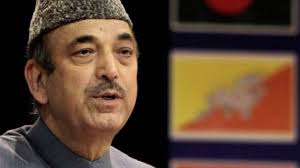After Aarogya Setu, tender for wristband to track patients by government enterprise causes concern
Coronavirus (COVID-19): Even as privacy concerns for COVID-19 tracking app Aarogya Setu remain, the Broadcast Engineering Consultants India Limited (BECIL) — a central public sector enterprise (CPSE) under the Ministry of Information and Broadcasting — has floated a tender inviting companies to supply devices such as COVID-19 patient tracking tool, online high fever scanning tools and handheld thermal imaging systems.
The requirements and functionalities sought by the CPSE in the three tools raise red flags of surveillance and “severe breach” of personal sensitive data, cybersecurity and legal experts said.
BECIL undertakes supply of specialised communication, monitoring, security and surveillance systems to defense, police and para-military departments, according to the tender document. The last date of opening of the bids for the three was fixed for Monday, April 20.
BECIL did not respond to emailed queries on privacy concerns. Another email which sought to know whether the CPSE had so far received any responses from the bidder and whether it had selected a vendor for these tools did not elicit a response either. Of the three tools sought by BECIL, the most controversial is the COVID-19 patient tracking tool, which could be in the form of a wristband, experts said.
There are 33 requirements that the government mandates the tool must have. The first among them says that it must be an “intelligence investigation platform & tactical tool to detect, prevent and investigate threats to national security,” using call data records, internet protocol detail record, tower and mobile phone forensics data.
“Reading through the specifications of the tracking tool, it is evident that the item, presumably a comprehensive software, goes beyond a healthcare tool and opens up the possibility of mass surveillance,” policy group Software Freedom Law Centre (SFLC) said in a statement.
The tracking tool should, among other things, be “advanced analytics and intelligence software that uses telecom & internet data to identify suspect locations, associations & behaviour”. The first two points, legal experts said, indicate in no uncertain terms that the app could be used as a tracking tool if the need be.
“It is sort of like the ankle bracelet for prisoners and parolees that many countries have … This tool takes one step forward and analyses the data, providing invasive insights into personal lives,” a Pune-based cyber-law expert said.
One of the requirements of the device states that it should be able to geofence an area of interest, such as “meeting place, airport, mosque, railway station, bus stand” and identify all the people present at the said location, the tender document said.
“Many components of the tool included in the tender document go beyond the common requirements of contact tracing and could result in pervasive surveillance,” the SFLC statement said.
 For the hand-held thermal imaging system too, the government has specified that the device — apart from being able to take temperatures from a distance of 2-5 metres — should also have a secure digital memory card slot with a capacity of up to 32 gigabytes.
For the hand-held thermal imaging system too, the government has specified that the device — apart from being able to take temperatures from a distance of 2-5 metres — should also have a secure digital memory card slot with a capacity of up to 32 gigabytes.
Apart from the tracking tool, the Centre has also sought supplies of hand-held thermal imaging system and an online thermal fever sensing system.
For the hand-held thermal imaging system too, the government has specified that the device — apart from being able to take temperatures from a distance of 2-5 metres — should also have a secure digital memory card slot with a capacity of up to 32 gigabytes.
The said device should also have voice annotation recording and text comment feature while capturing an image, and should have an in-built microphone and be big enough to be mounted on a tripod. Though the device will have “an audio alarm for high temperature,”, the “high-temperature value shall be adjustable as per user requirement in the real-time scenario”, the tender document said.
The third tool, an online thermal fever sensing system, also has certain controversial requirements such as face detection feature, video and audio recording, a minimum of one month of video footage being recorded, experts said.
INDIAN EXPRESS




